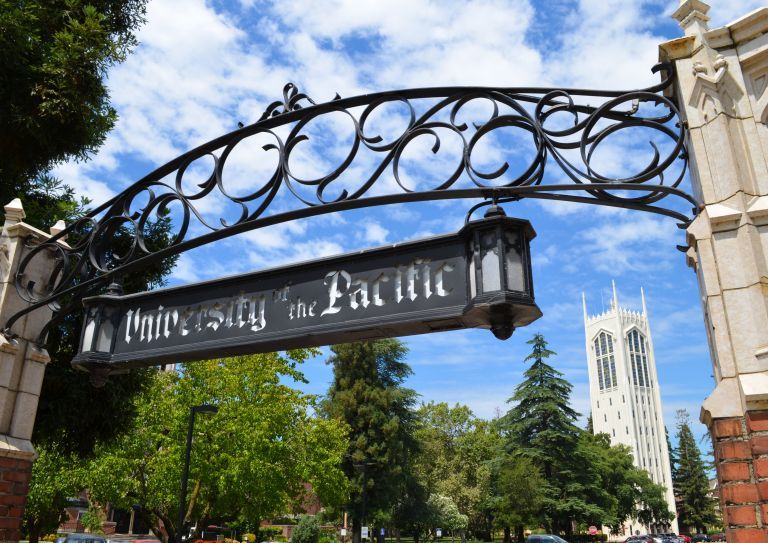Make a gift through your IRA starting at age 70½.
At age 73, you’re required to start taking a minimum distribution from your IRA. But did you know You can make direct donations to charitable organizations, called Qualified Charitable Distributions (QCDs), beginning at age 70½.
Reduce taxes for your heirs with one simple beneficiary change.
Many donors include charitable gifts to Pacific in their estate plans. One tax-smart strategy is to designate Pacific as a beneficiary of your IRA, 401(k), or 403(b) account, or to designate a charitable gift to Pacific specifically from your retirement account as part of your will or trust allowing your loved ones to receive non-taxable assets. Designating a charitable gift be paid from a retirement account allows your heirs to receive other, non-taxable assets, from your estate potentially saving your loved ones income taxes.
Leverage “bunching” or use a Donor-Advised Fund (DAF) to give annually.
If your total itemized deductions are less than $14,600 (for single filers) or $29,200 (for married couples filing jointly), you could benefit from “Bunching” your 2024 and 2025 charitable donations together in 2024 may produce a larger one-time deduction versus two years’ standard deductions.
Take advantage of inflation by donating non-cash assets.
As we continue to experience rising costs, your own assets may be increasing in value. Consider making year-end charitable gifts using appreciated non-cash assets rather than cash. Appreciated assets such as stocks create two tax benefits: You’ll offset capital gains, and you’ll receive a charitable deduction on your tax return.
Fund an annuity or trust.
By funding a Charitable Gift Annuity (CGA) or charitable trust you can create a stream of income for yourself or loved ones.




